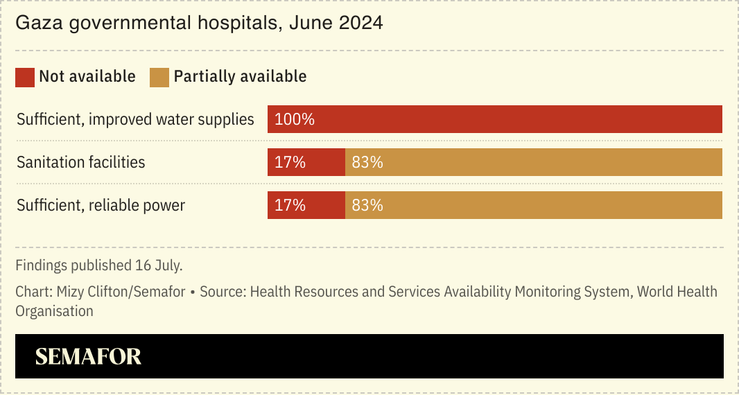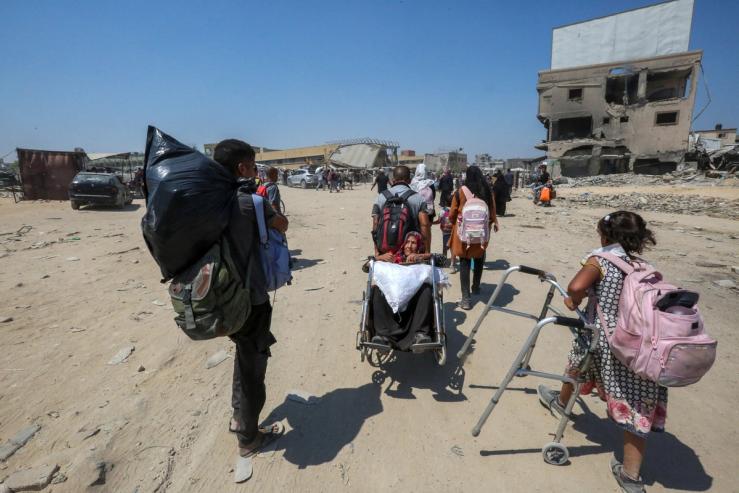The News
A World Health Organization warning about the possibility of a polio outbreak in Gaza comes as the territory is already battling with a mounting public health crisis.
Experts voiced worries about the security risks involved with launching an effective vaccination campaign as the Gaza Health Ministry said Wednesday that at least 39,145 people have been killed since the war began nine months ago.
SIGNALS
Gaza already faces a public health emergency

Gaza is already grappling with a public health emergency: More than 100,000 people have contracted acute jaundice syndrome, or suspected hepatitis A, and there are nearly a million cases of acute respiratory infections, The New York Times reported. The enclave’s health care system was “reasonably well functional” before the war, a WHO representative said, but fewer than half of its facilities now remain operational, and more than 500 medical personnel had been killed as of late June, according to the UN Human Rights Office. Israeli attacks on hospitals and other medical facilities “should be investigated as war crimes,” Human Rights Watch argued in November.
Death tolls in Gaza continue to be controversial
Non-peer reviewed correspondence published in the medical journal The Lancet in June argued a “conservative” estimate suggested that up to 186,000 deaths could be indirectly attributed to the conflict in the long term, partly due to the spread of disease. The letter made headlines: Al Jazeera reported it as a “study”, while right-leaning Israeli newspaper The Jerusalem Post argued its substance amounted to antisemitic “blood libel,” saying it had been granted a false aura of reliability by The Lancet’s platform. But the president of NGO Doctors of the World told France24 the estimate could be “credible” due to underestimates so far. “What’s clear is that the continuing campaign of direct and indirect violence will have a toll far beyond the immediate catastrophe,” The Guardian’s data editor wrote.
The war is having a ‘disproportionate impact’ on people with disabilities
In May, the UN warned that the conflict had “disproportionate impacts on people with disabilities” — women and children with disabilities are among 70% of civilians killed and 75% of those reportedly injured. Disabled Palestinians are struggling to flee the fighting, and those that do are “packed into cars, carts, and minibuses” and forced to leave vital medical equipment behind, the executive director of the National Rehabilitation Society in the Gaza Strip wrote in The Guardian. This equipment is unlikely to be replaced because Israel has restricted spare parts and batteries for assisted devices like wheelchairs on the basis they could be used for military purposes, leaving disabled people “isolated, with no independence or sense of autonomy or dignity,” he added.



